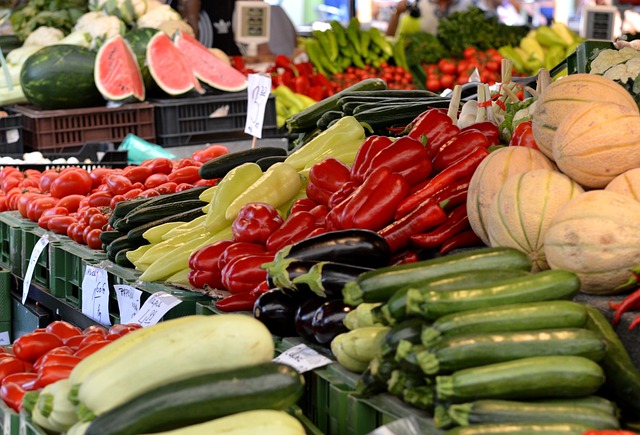Homeowners are shifting towards eco-friendly lawn care by adopting sustainable practices that reduce environmental impact. Key among these is the responsible management of yard waste through Yard Waste Removal and Recycling initiatives. Composting organic matter like grass clippings and leaves enhances soil health, reducing the need for chemical fertilizers, while mulching controls weeds, conserves moisture, and enriches the soil. Local collection services play a crucial role in transforming this organic material into compost for community or agricultural use. Chipping large debris and using mulching mowers for grass clippings and leaves efficiently support these efforts. These practices not only improve garden health but also significantly cut down landfill waste and methane emissions, contributing to a healthier planet. Composting organic yard waste effectively repurposes it into beneficial soil amendments, with homeowners maintaining an optimal carbon to nitrogen ratio and monitoring the compost pile's progress for effective decomposition. Mulching further supports sustainability by enriching the soil, suppressing weeds, conserving moisture, and reducing yard waste production. Overall, Yard Waste Removal and Recycling are critical components in promoting eco-friendly landscapes and contributing to broader sustainability goals, demonstrating how individual choices can collectively lessen the environmental footprint of yard maintenance.
Homeowners are increasingly turning to eco-friendly yard care practices to minimize their environmental footprint. This article delves into sustainable approaches for maintaining lush lawns and gardens, emphasizing the importance of yard waste removal and recycling. From composting organic matter to mulching effectively, we explore actionable strategies that not only enhance soil health but also contribute to conservation efforts. Additionally, we highlight innovative local initiatives that are transforming grass clippings, leaves, and other lawn debris into valuable community resources. By adopting these eco-conscious methods, homeowners can play a pivotal role in the broader movement towards sustainability.
- Embracing Sustainability: Homeowners' Guide to Eco-Friendly Yard Care with a Focus on Yard Waste Removal and Recycling
- Composting Organic Matter: How to Turn Grass Clippings and Leaves into Nutrient-Rich Soil
- Mulching for Conservation: Reducing Yard Waste through Effective Landscaping Practices
- Innovative Yard Waste Recycling Programs: Local Initiatives Transforming Lawn Debris into Community Benefits
Embracing Sustainability: Homeowners' Guide to Eco-Friendly Yard Care with a Focus on Yard Waste Removal and Recycling

Homeowners committed to sustainability are increasingly turning their attention to eco-friendly yard care practices, recognizing the significant environmental impact of traditional lawn maintenance. A pivotal aspect of this green shift is the management of yard waste, which traditionally contributes to landfill overload and methane emissions. Yard Waste Removal and Recycling play a crucial role in mitigating these issues. Composting organic matter like grass clippings and leaves not only returns nutrients to the soil but also reduces the need for chemical fertilizers. Similarly, proper mulching can suppress weeds, retain soil moisture, and improve soil quality, further minimizing the reliance on synthetic products.
To effectively implement Yard Waste Removal and Recycling, homeowners should explore local yard waste collection programs, which often turn organic materials into nutrient-rich compost for community gardens or agricultural use. Chipping large debris into smaller pieces can also aid in the decomposition process, making it easier for these materials to break down naturally. Additionally, using a mulching mower for grass clippings and leaves can create a beneficial layer over soil, reducing the need for additional yard waste disposal. By adopting these eco-conscious practices, homeowners not only contribute to a healthier planet but also foster beautiful, sustainable landscapes that will thrive for years to come.
Composting Organic Matter: How to Turn Grass Clippings and Leaves into Nutrient-Rich Soil

Yard waste, including grass clippings and leaves, can be transformed into a valuable resource for your garden through composting. This natural process not only reduces the volume of yard waste requiring removal but also produces a nutrient-rich soil amendment known as compost. By composting organic matter, homeowners can enrich their soil, promote plant growth, and minimize environmental impact associated with traditional yard waste disposal methods.
To begin composting, select a suitable location in your yard that is convenient and allows for proper aeration. Ensure the compost pile receives an adequate supply of oxygen by turning it regularly. Moisture levels should be maintained; the compost should be as wet as a wrung-out sponge. Balance carbon-rich ‘browns’ like dried leaves with nitrogen-rich ‘greens’ such as grass clippings in a 30:1 ratio to optimize decomposition. Monitor the compost pile for temperature and signs of decomposition, which indicate the process is progressing. Yard waste removal and recycling through composting not only repurposes organic matter but also contributes to healthier soils and a more sustainable environment. It’s a practical and eco-friendly approach to yard maintenance that benefits both your garden and the planet.
Mulching for Conservation: Reducing Yard Waste through Effective Landscaping Practices

Homeowners who are dedicated to eco-friendly practices can significantly contribute to conservation efforts by adopting effective landscaping techniques such as mulching. This practice not only enriches the soil, promoting plant health and growth, but also plays a crucial role in reducing yard waste. By applying mulch around plants and trees, homeowners can diminish the need for frequent weeding, conserve moisture, and reduce the amount of organic matter that would otherwise end up as waste. The process of yard waste removal and recycling is thus minimized, as less grass clippings, leaves, and other yard trimmings are produced. Organic mulches like wood chips, straw, or shredded leaves can be reapplied to the soil as they break down, creating a nutrient-rich layer that suppresses weeds and helps manage soil temperature. This not only lessens the environmental impact of yard maintenance but also supports the health of the landscape, making mulching an indispensable tool for those committed to sustainable practices. Yard waste removal and recycling programs are increasingly being recognized as vital components of community-wide sustainability initiatives, and homeowners who mulch can play a pivotal role in these efforts by reducing the volume of yard waste that would otherwise be collected and processed. Embracing this simple yet effective approach to lawn care is a step towards a more sustainable environment, highlighting the importance of individual actions in promoting conservation.
Innovative Yard Waste Recycling Programs: Local Initiatives Transforming Lawn Debris into Community Benefits

Homeowners have a pivotal role in fostering eco-friendly practices within their yards, and by adopting sustainable yard care methods, they contribute significantly to environmental conservation. The guidance provided on removing and recycling yard waste effectively not only enriches the soil through composting but also promotes mulching for soil health and conservation. Moreover, participating in local yard waste recycling programs transforms what was once considered waste into valuable resources, thereby benefiting communities and the planet. Embracing these eco-conscious approaches is a step towards a greener future for our landscapes and a testament to the positive impact individual actions can have when united by a common commitment to sustainability.






